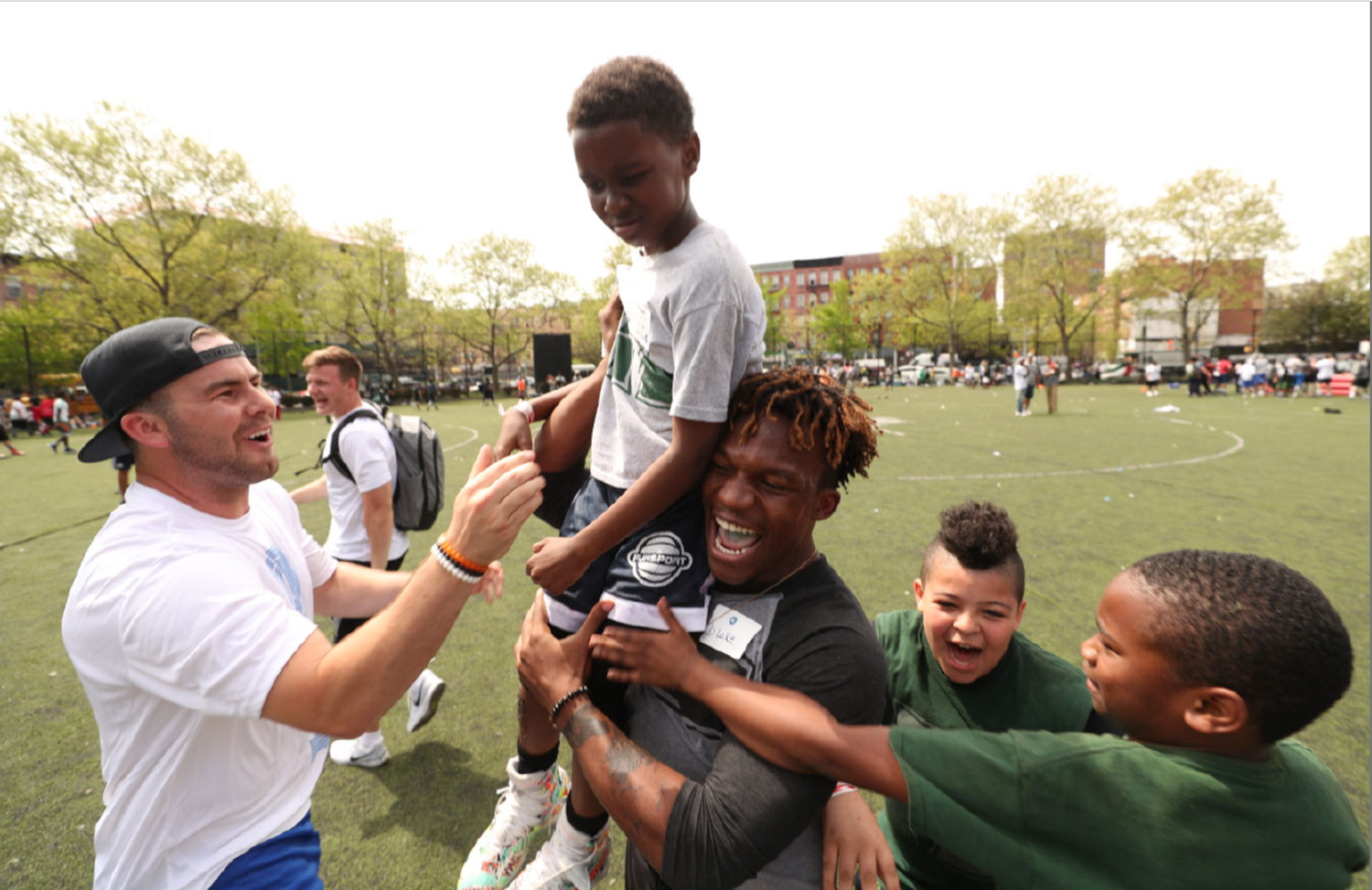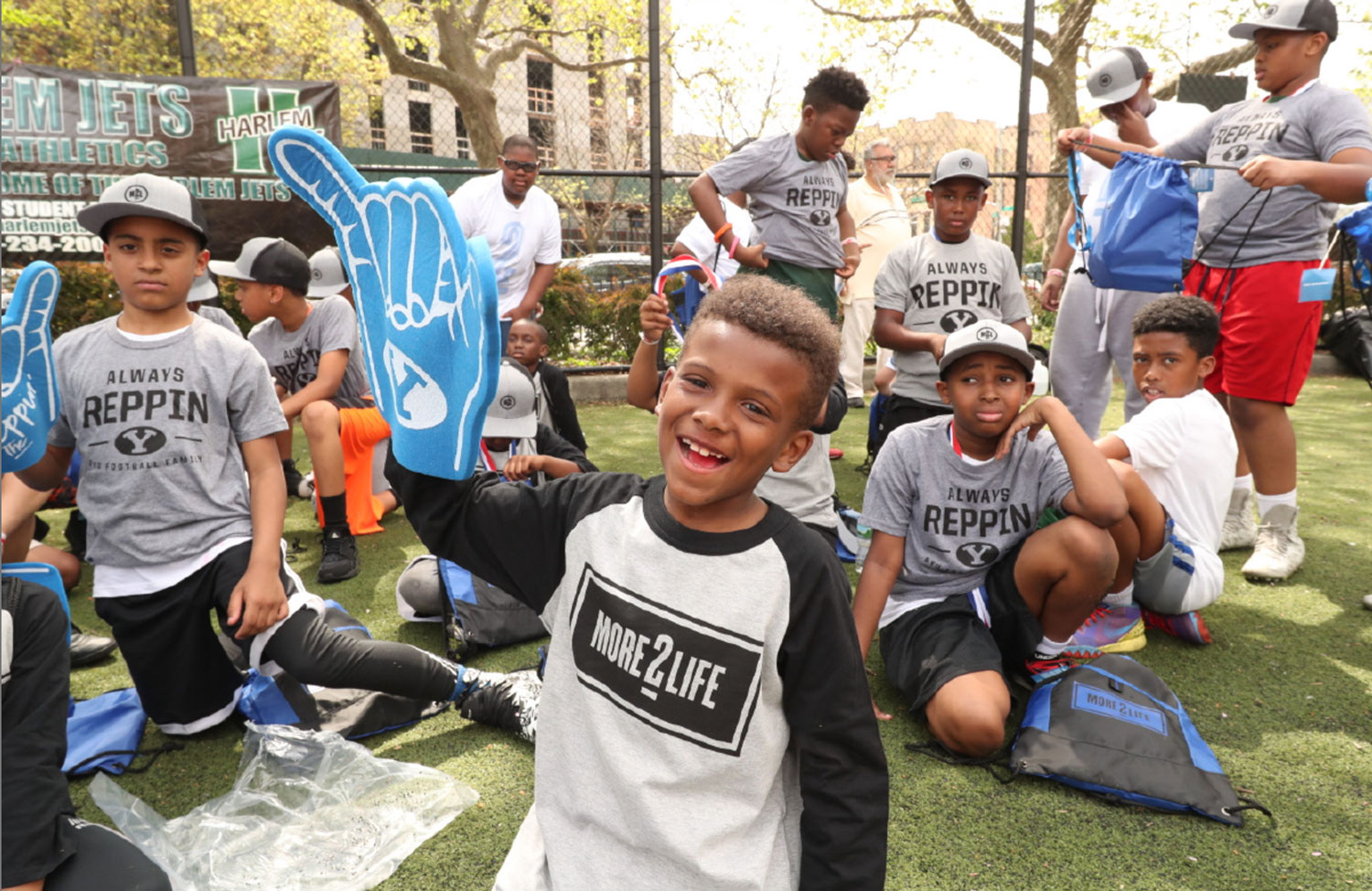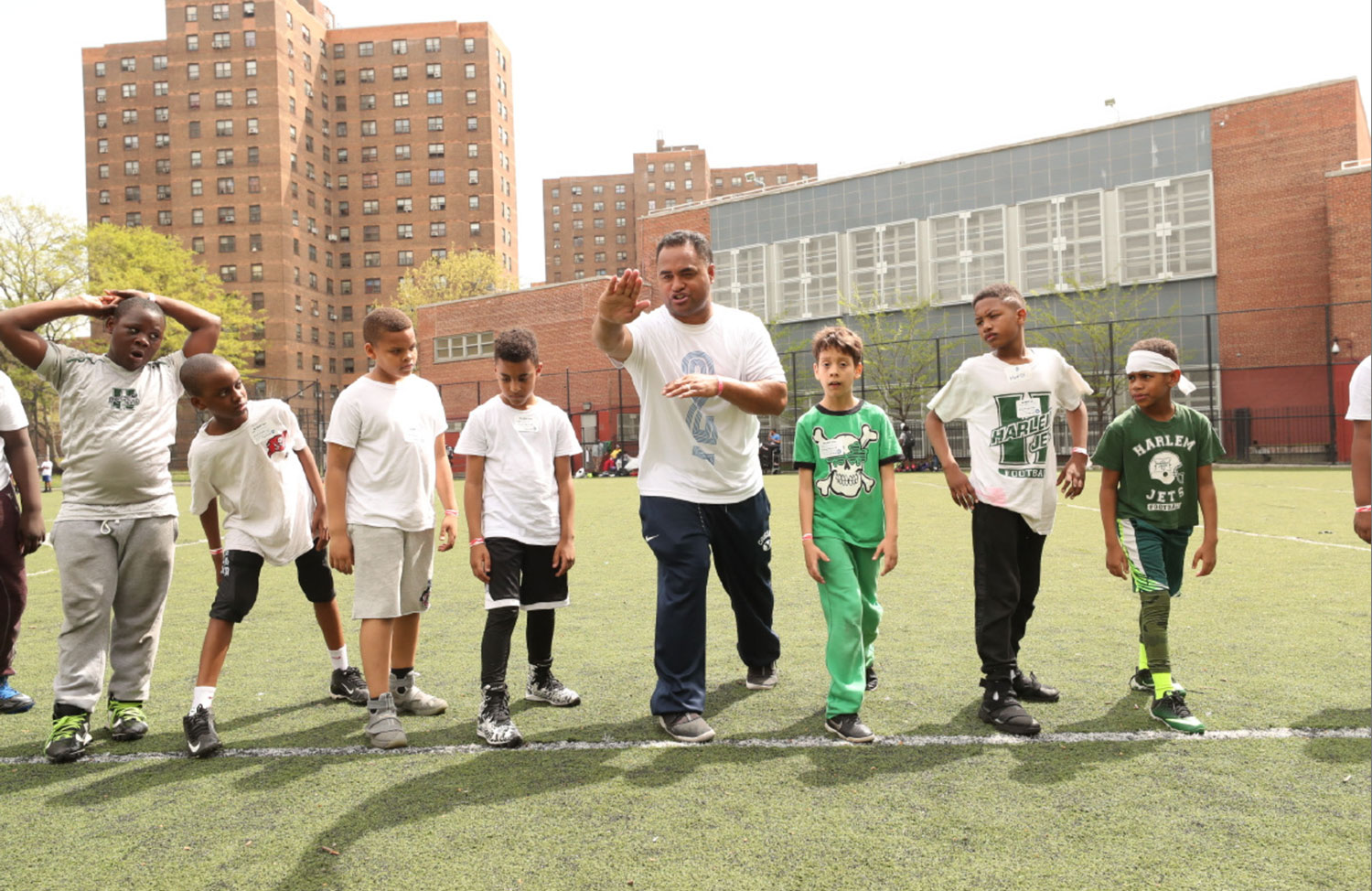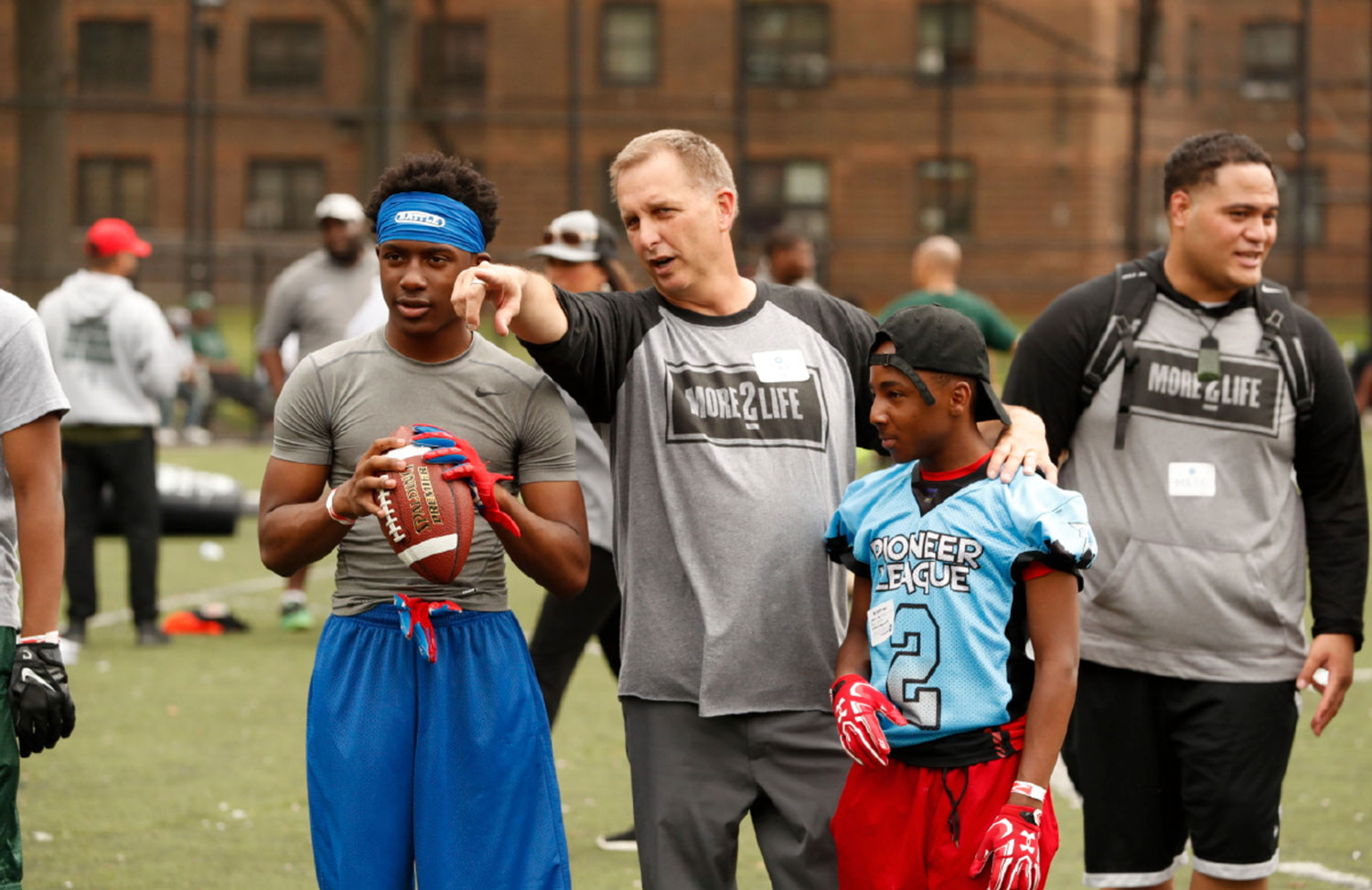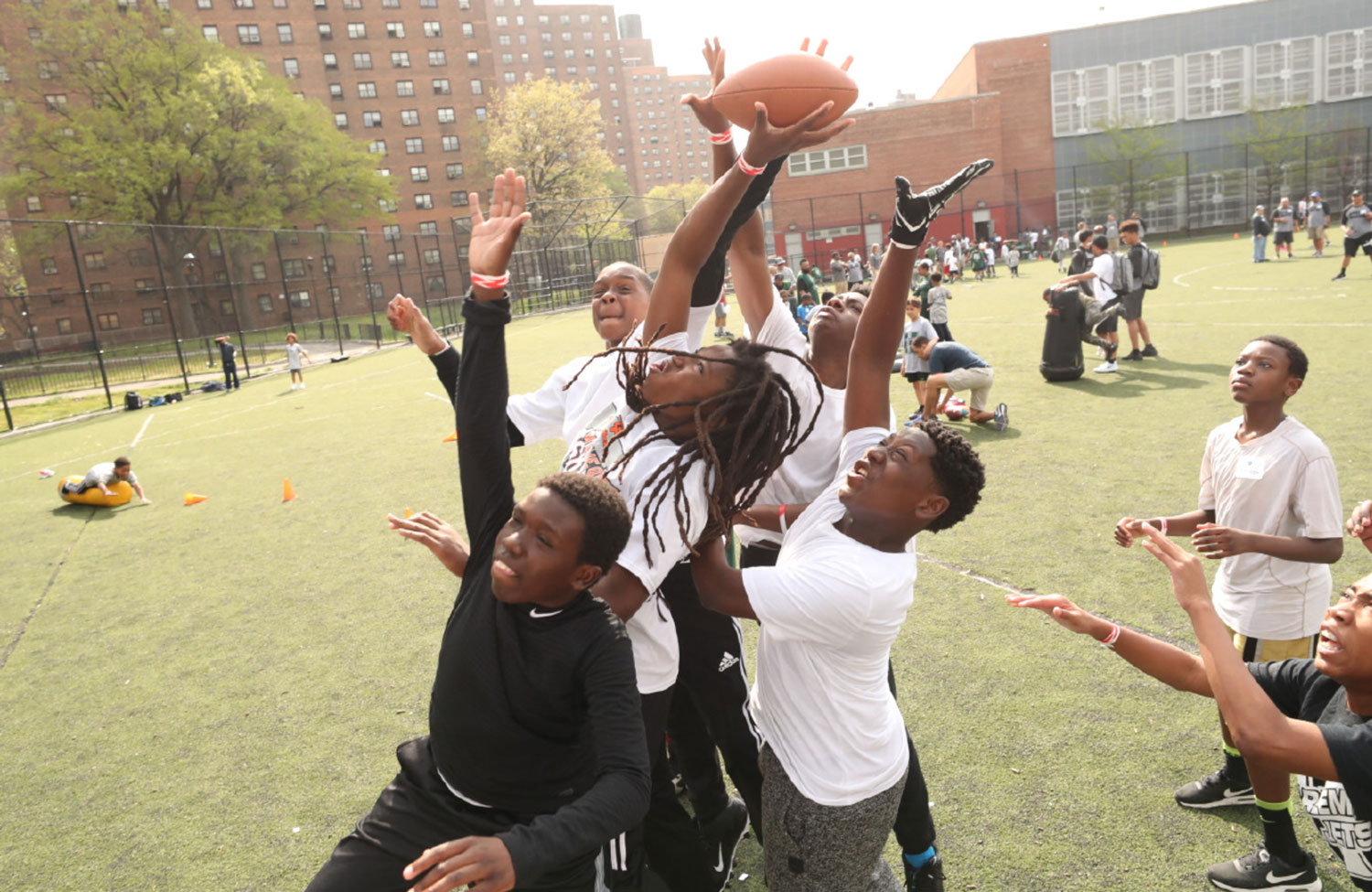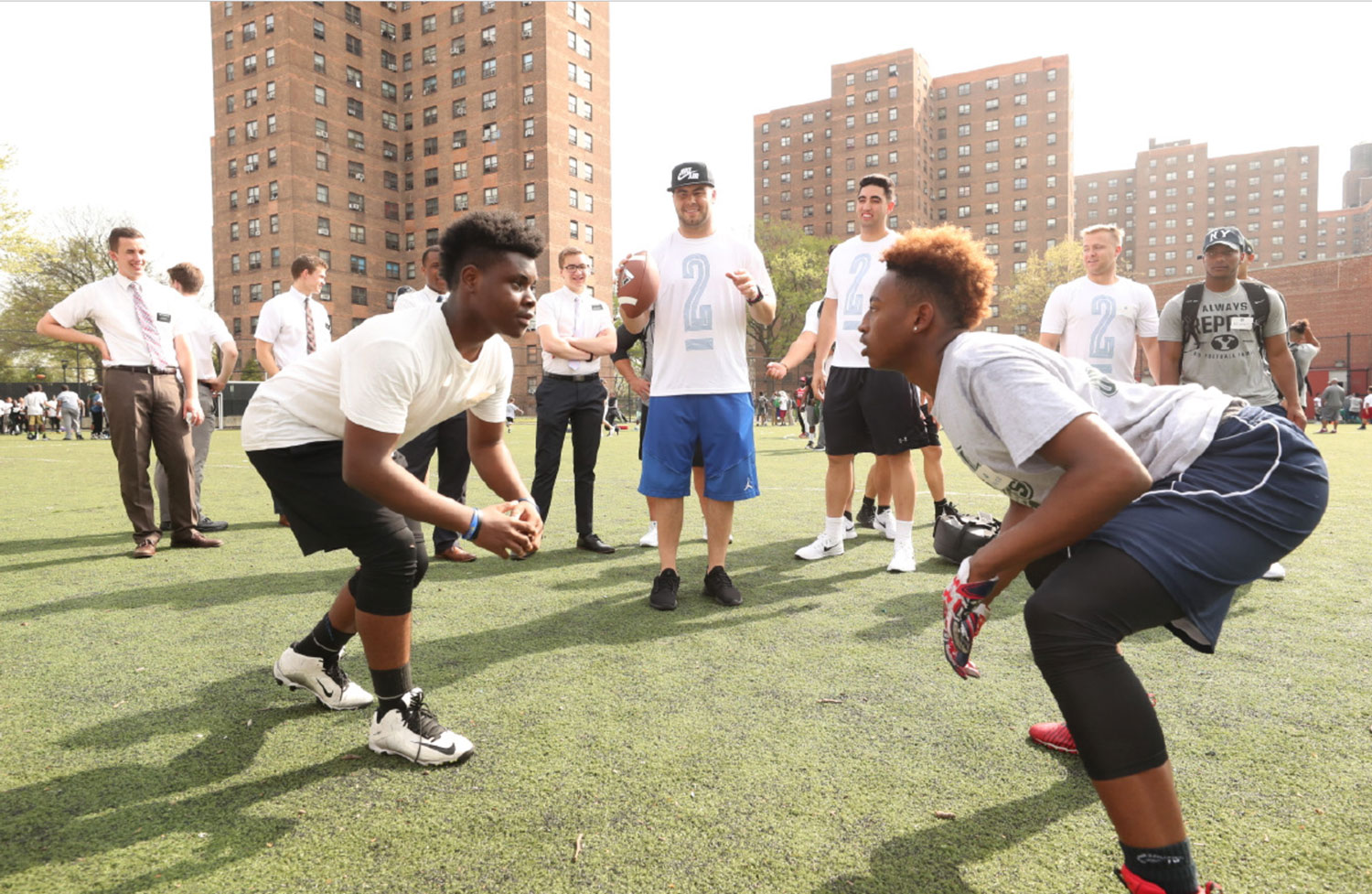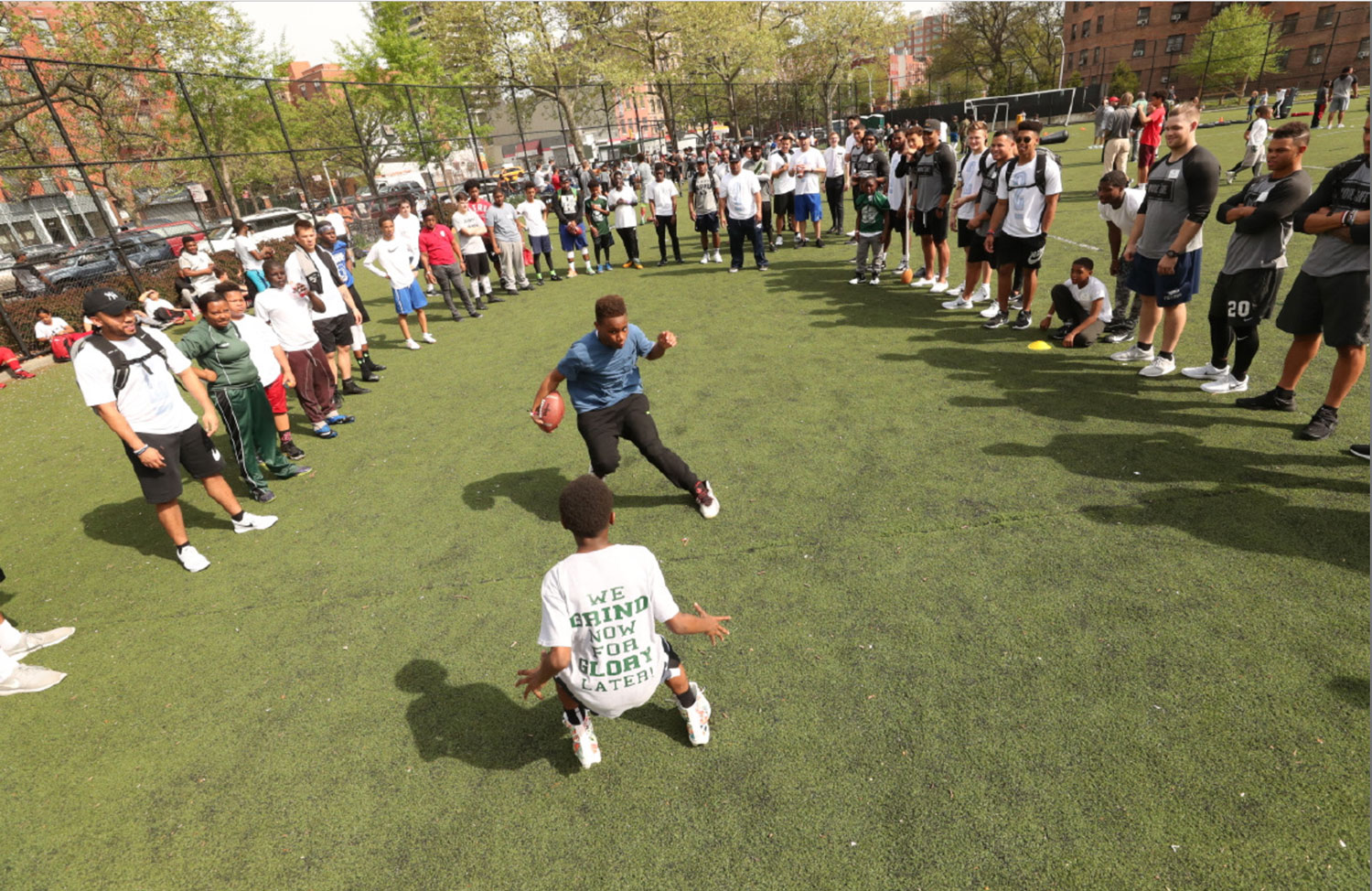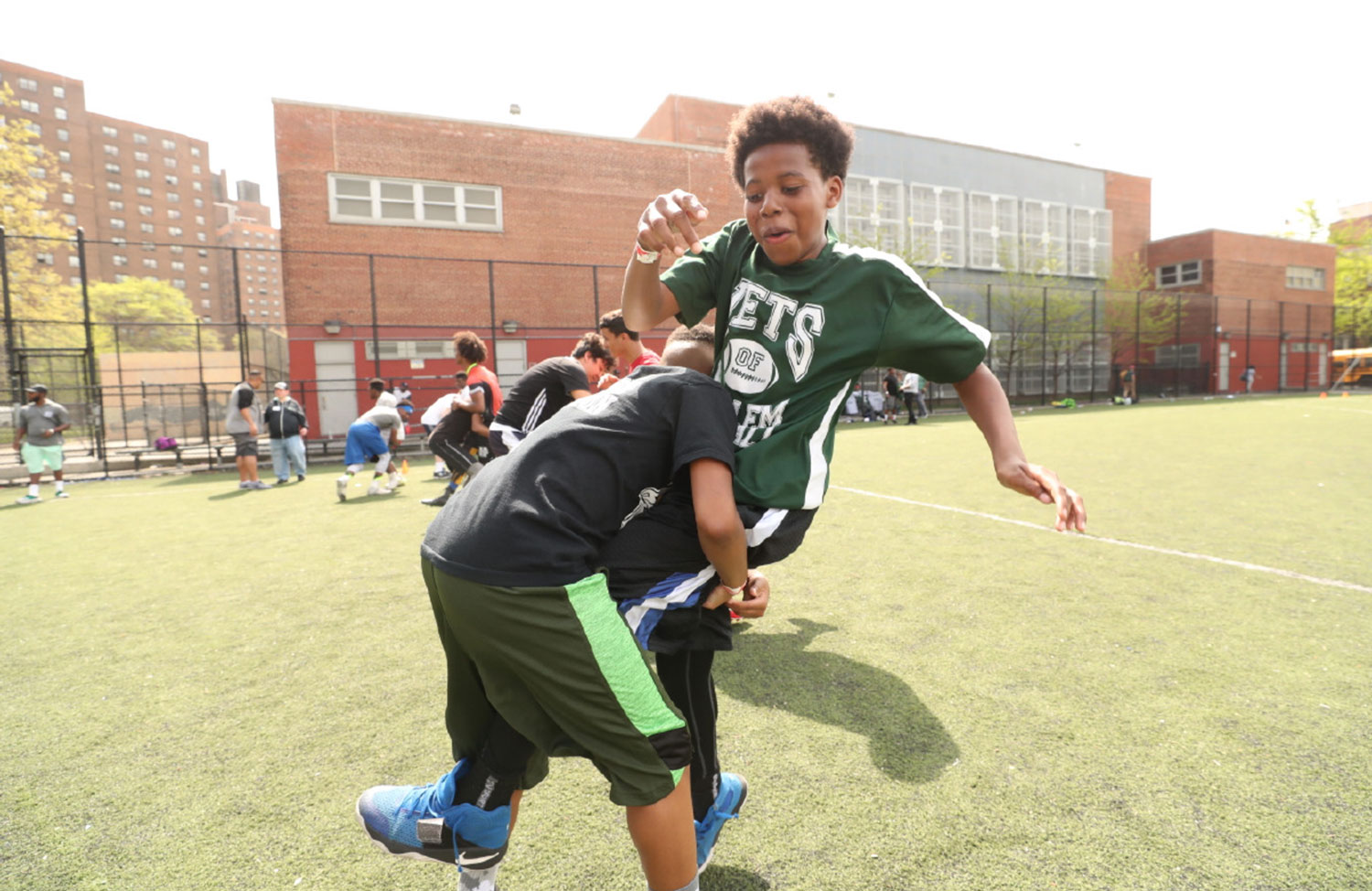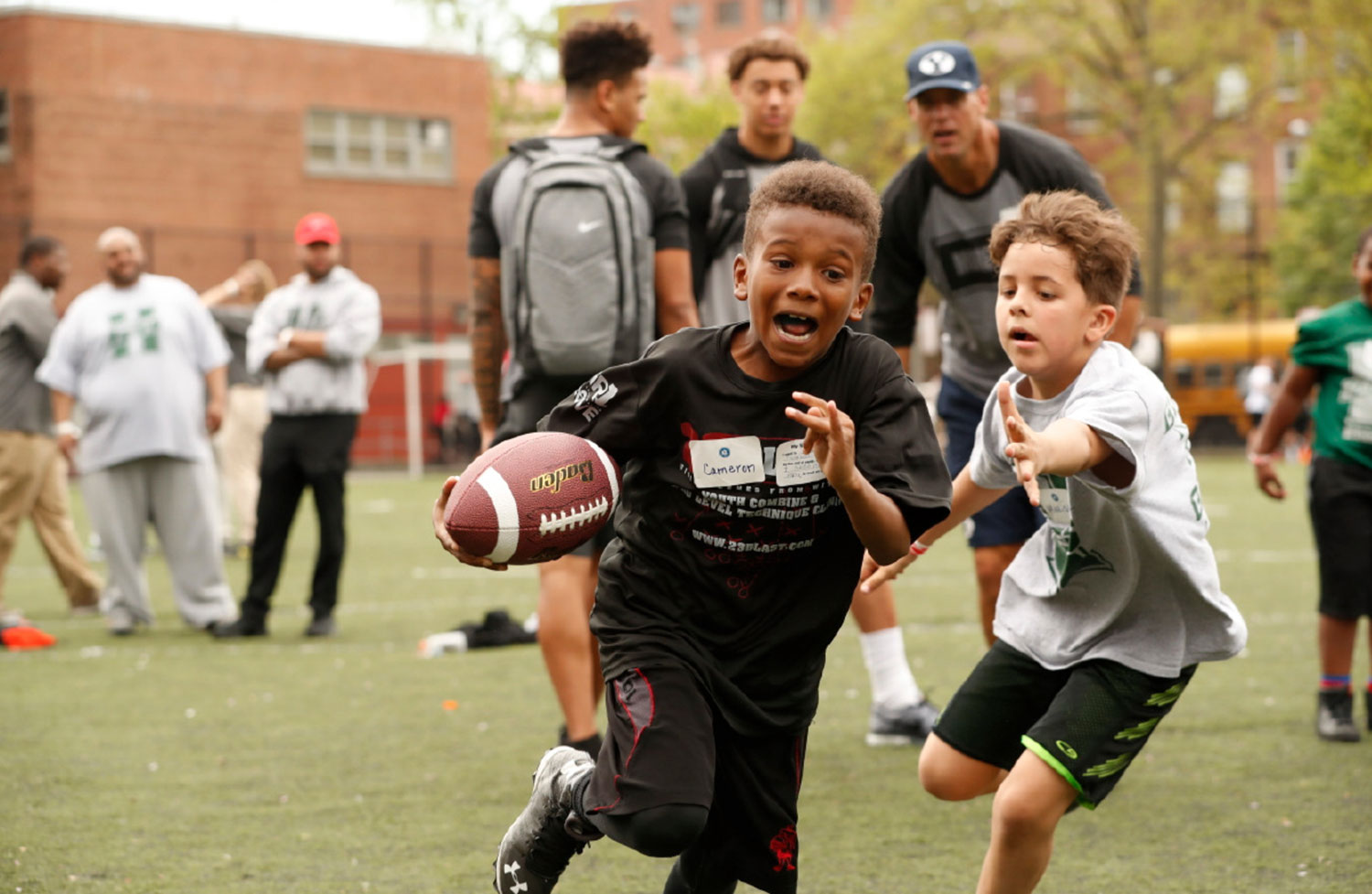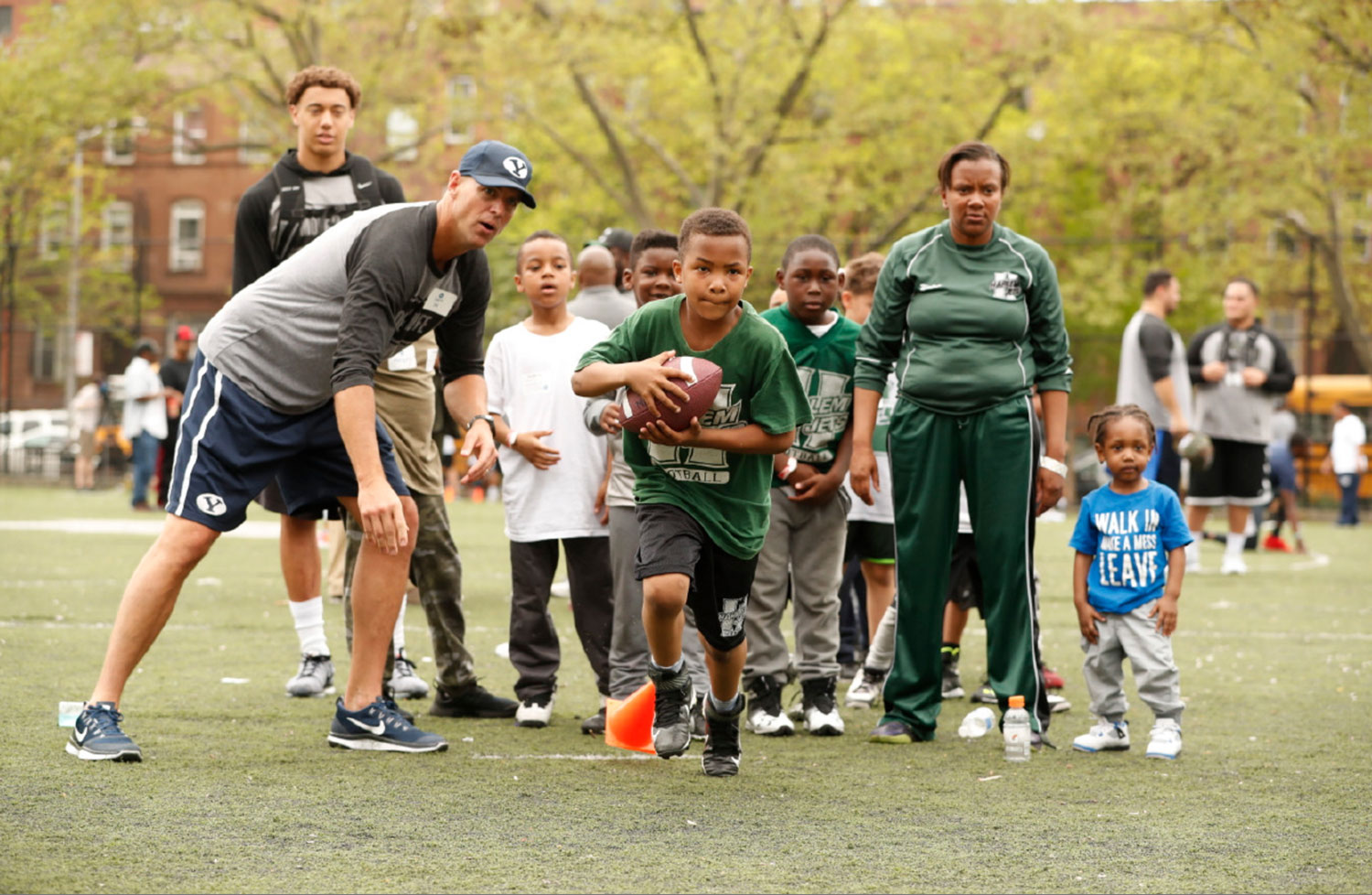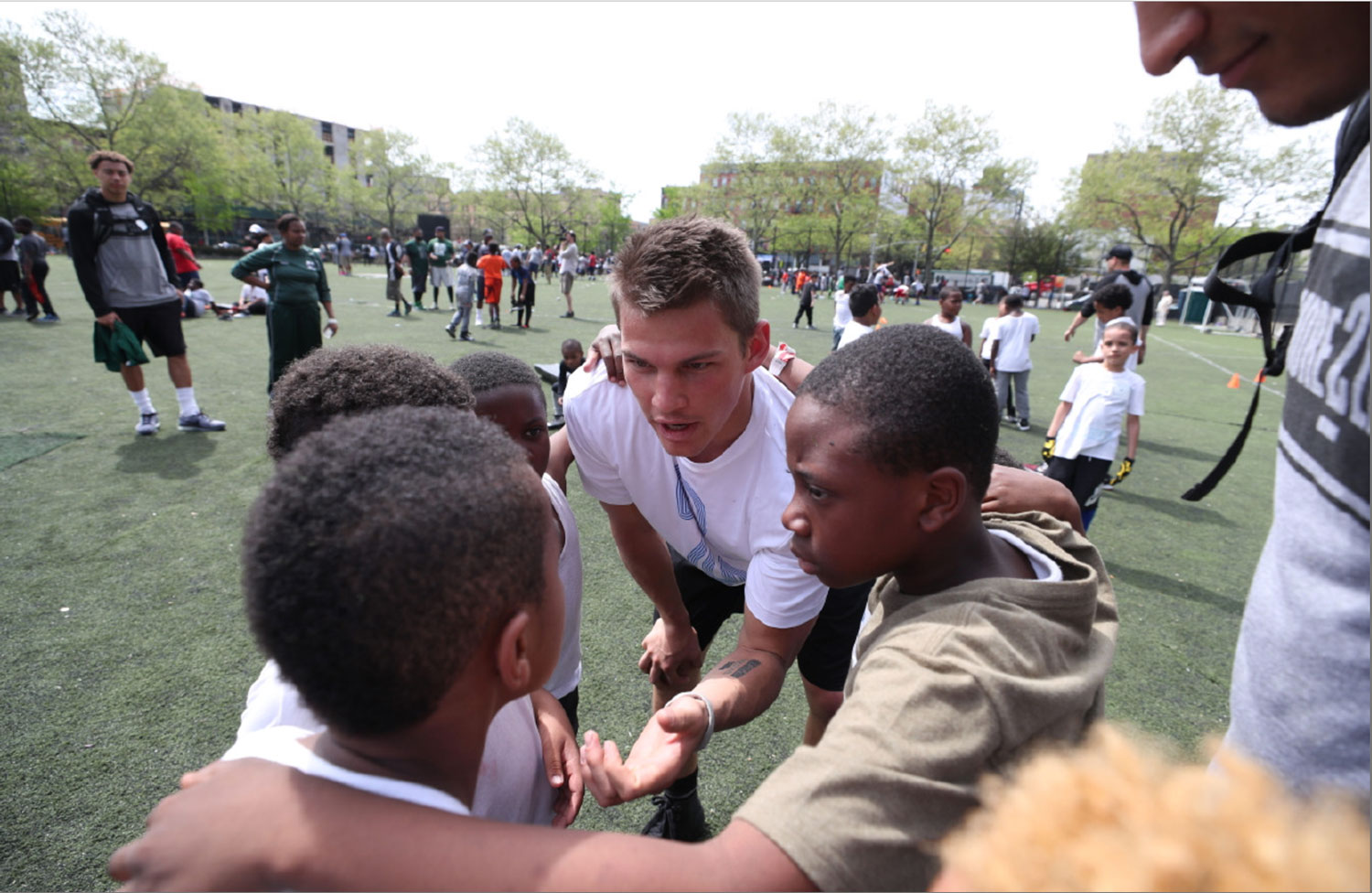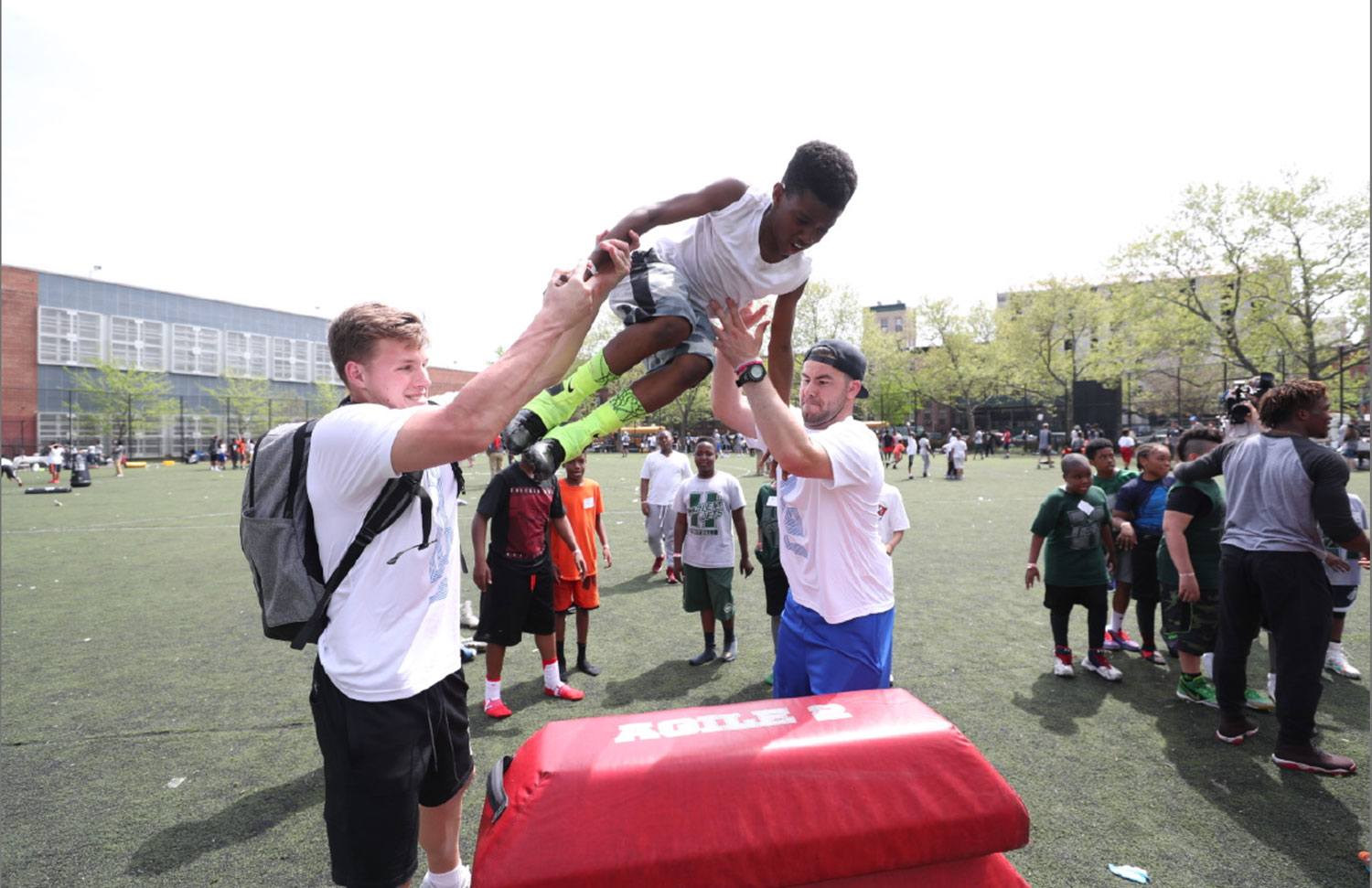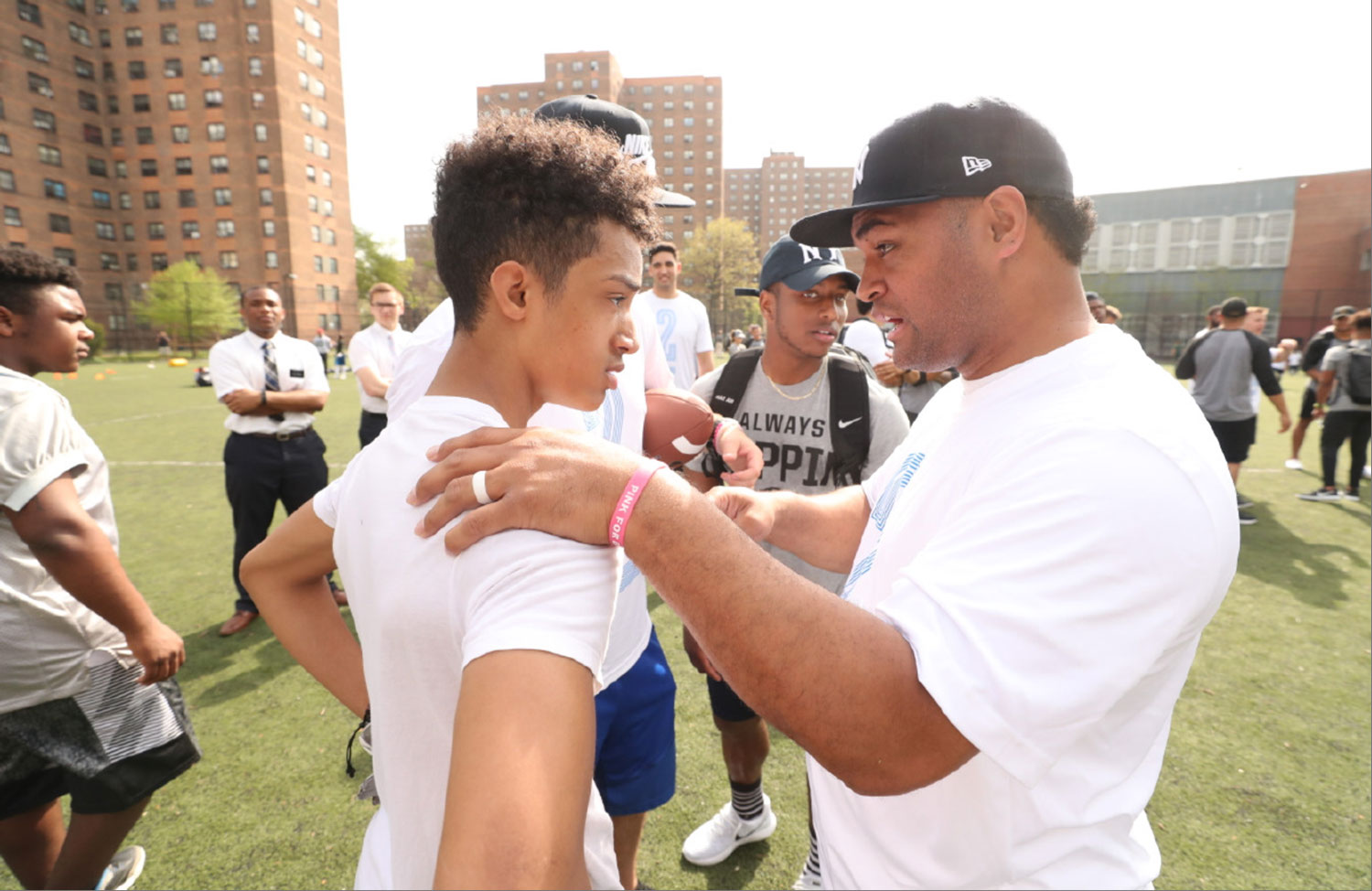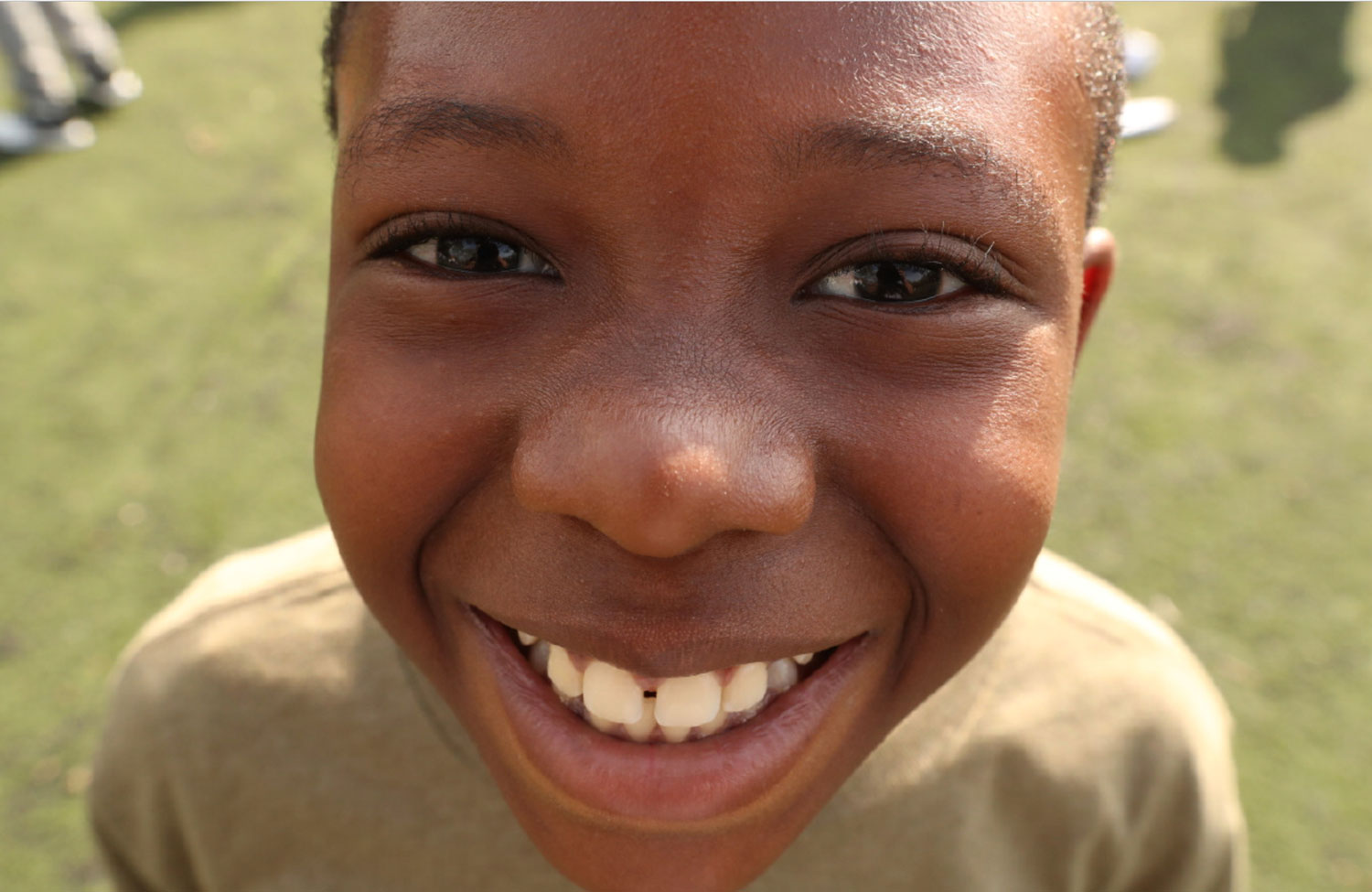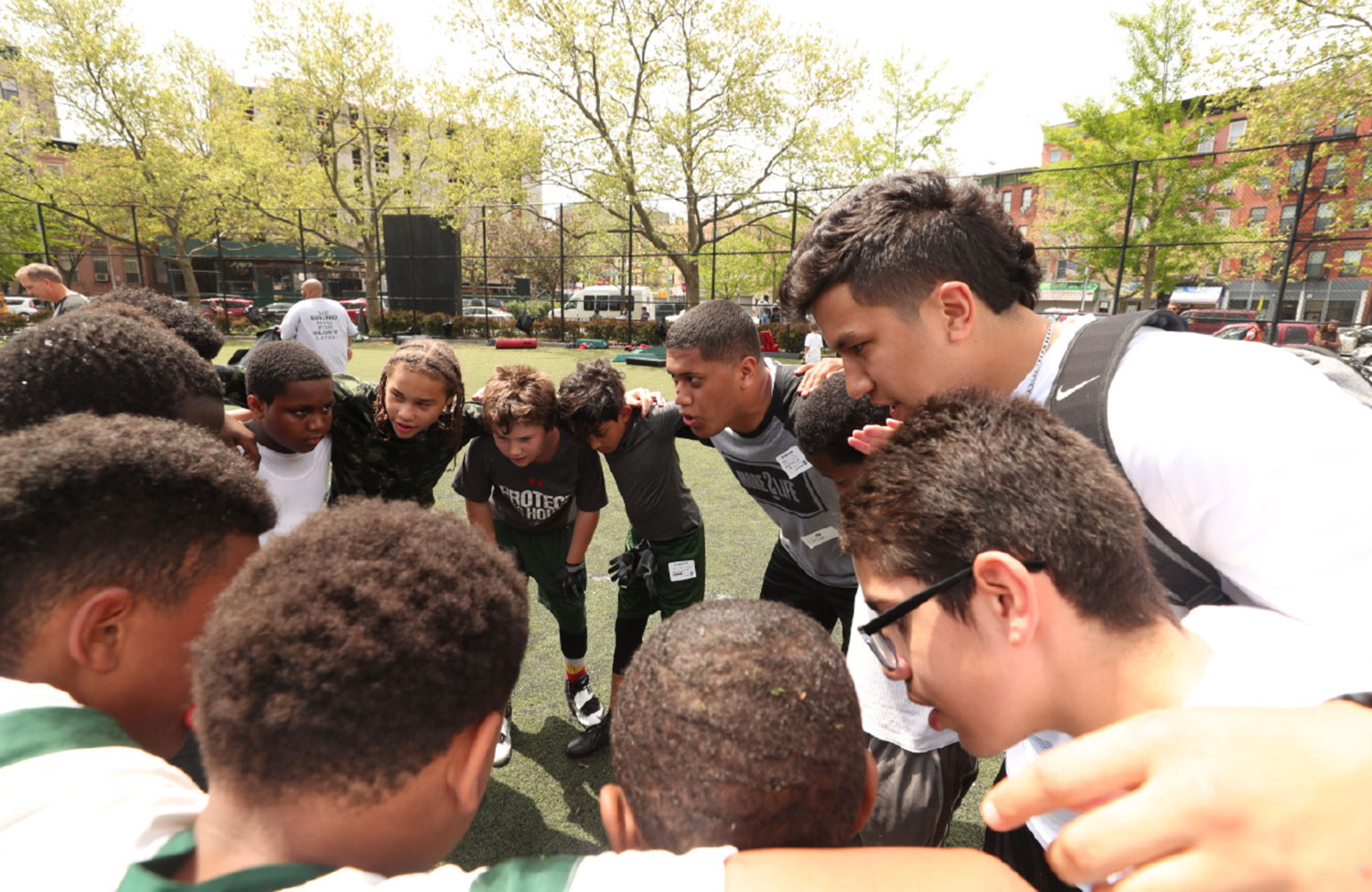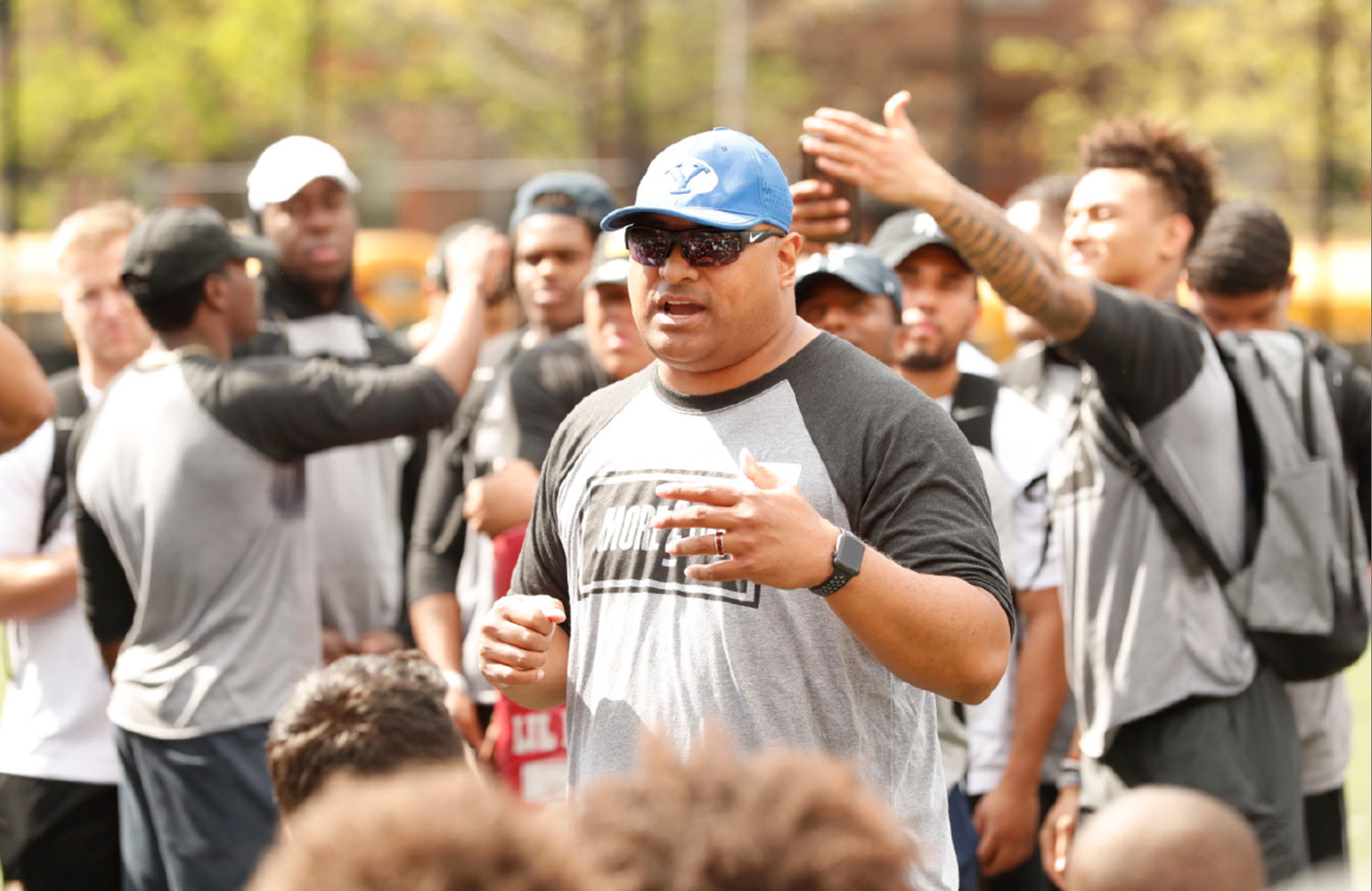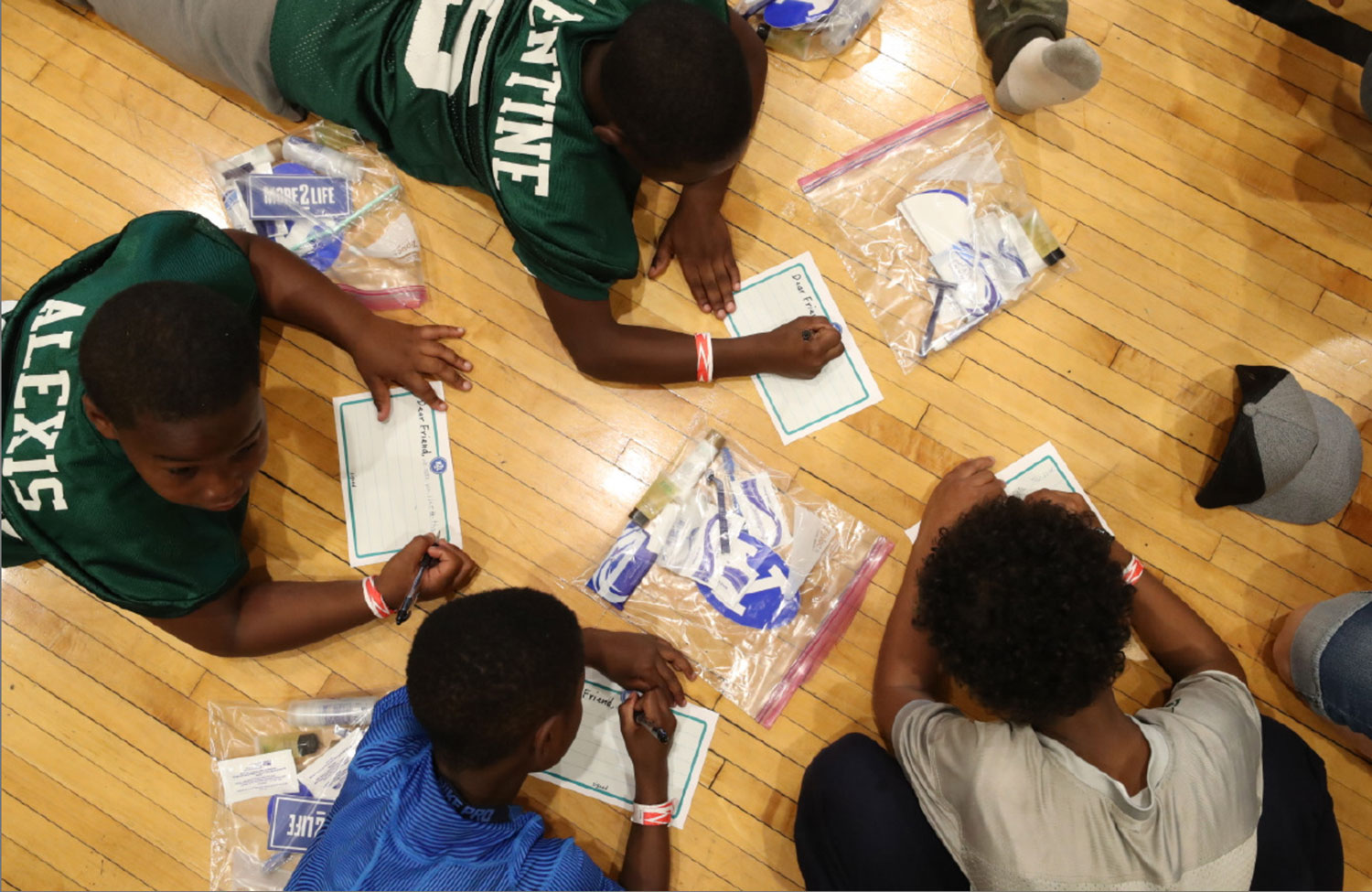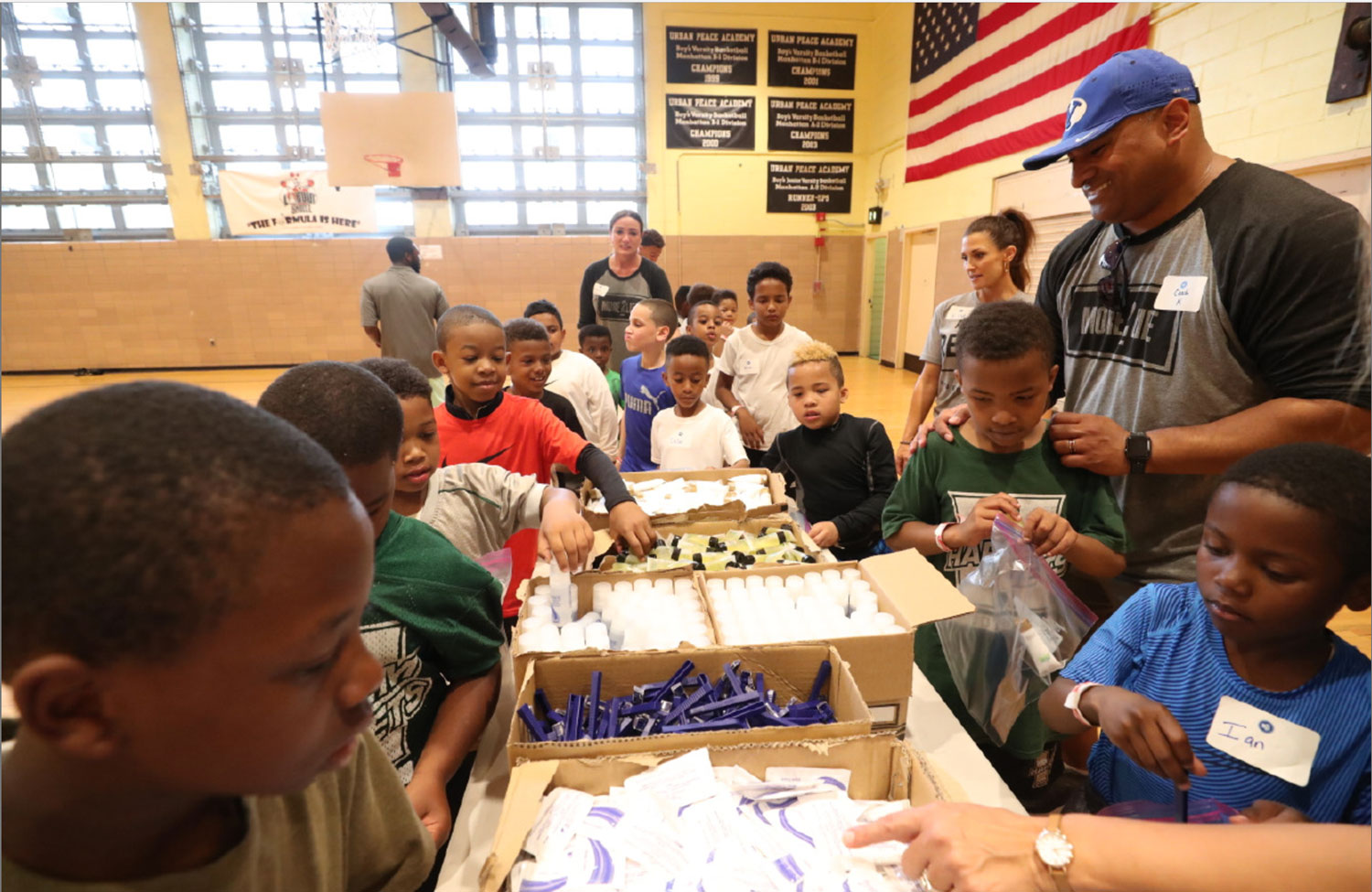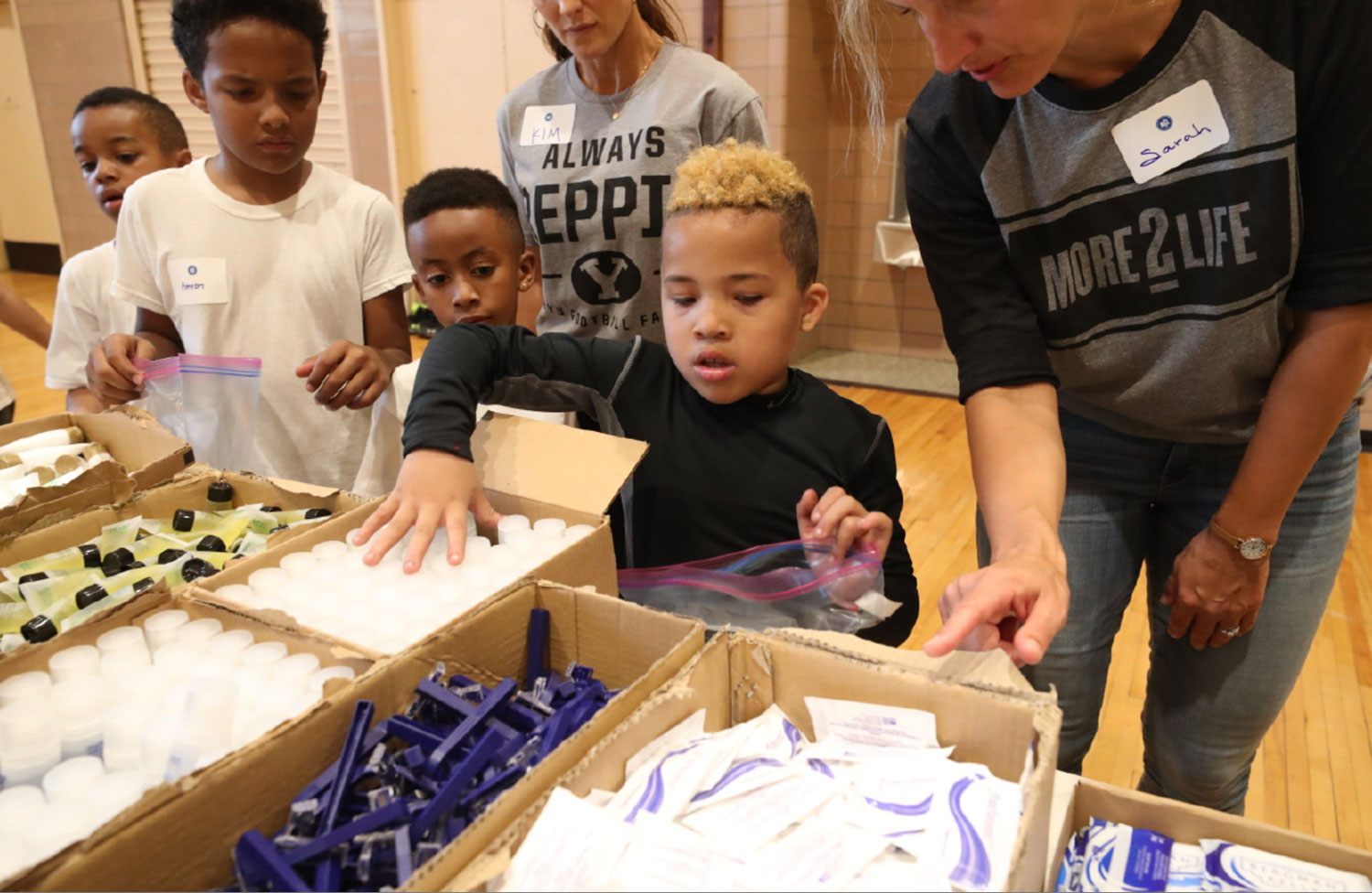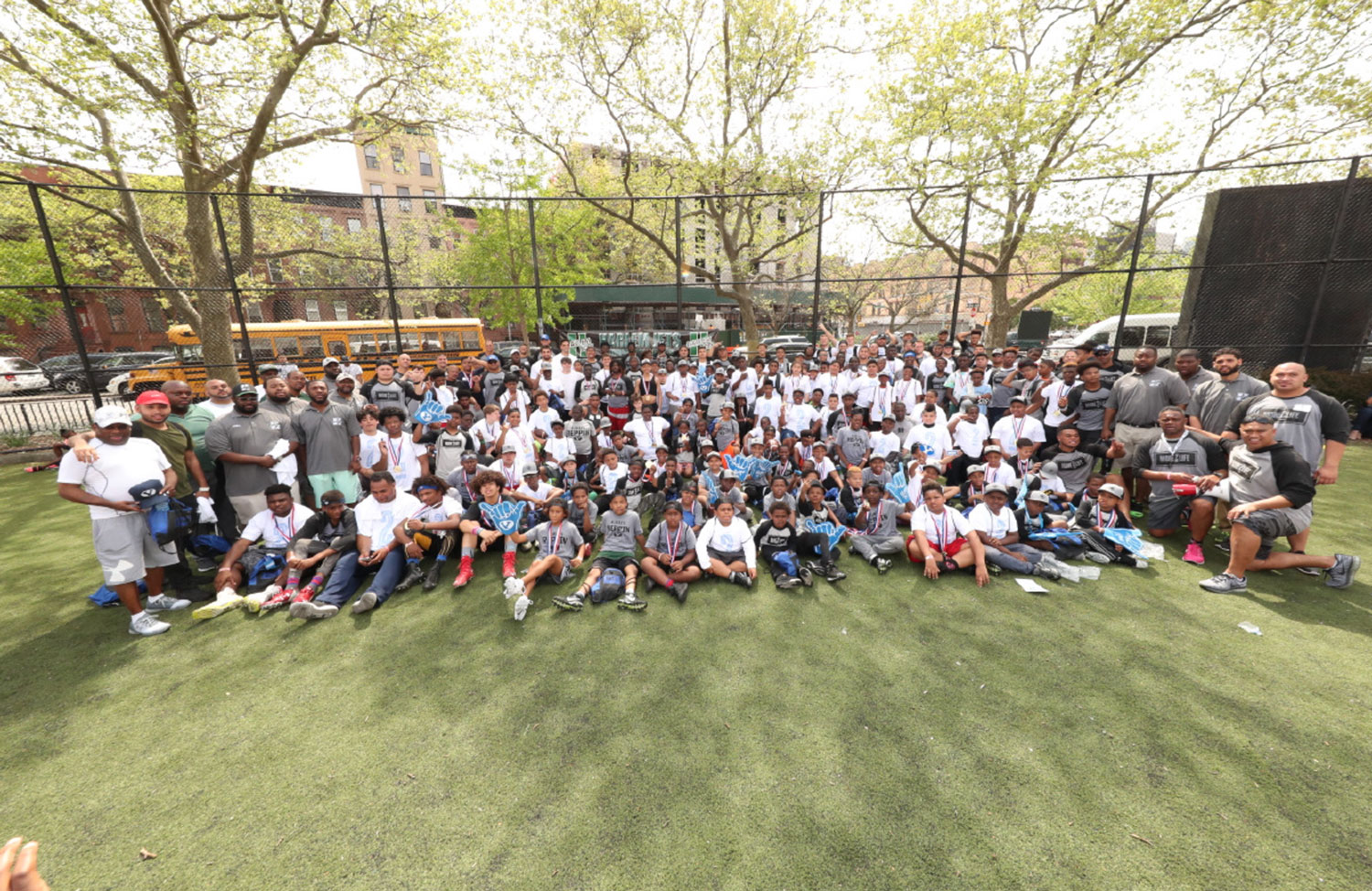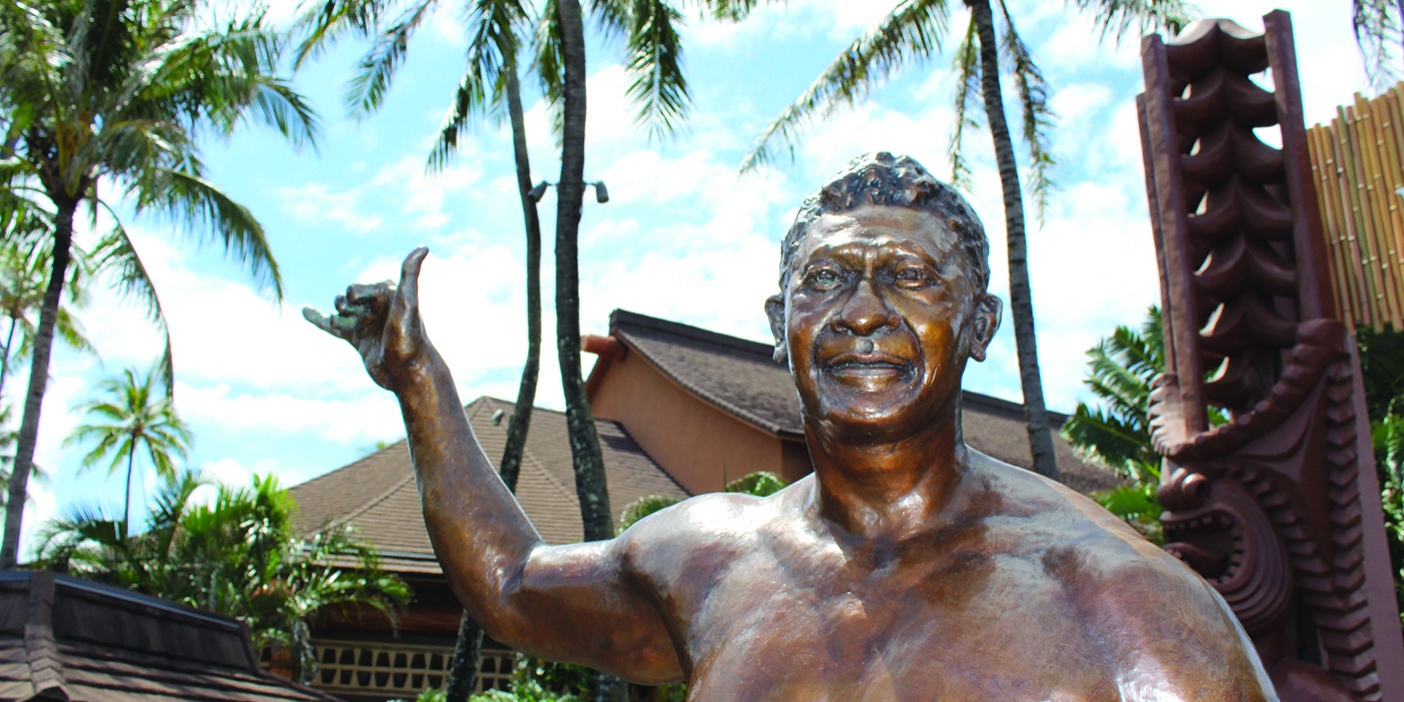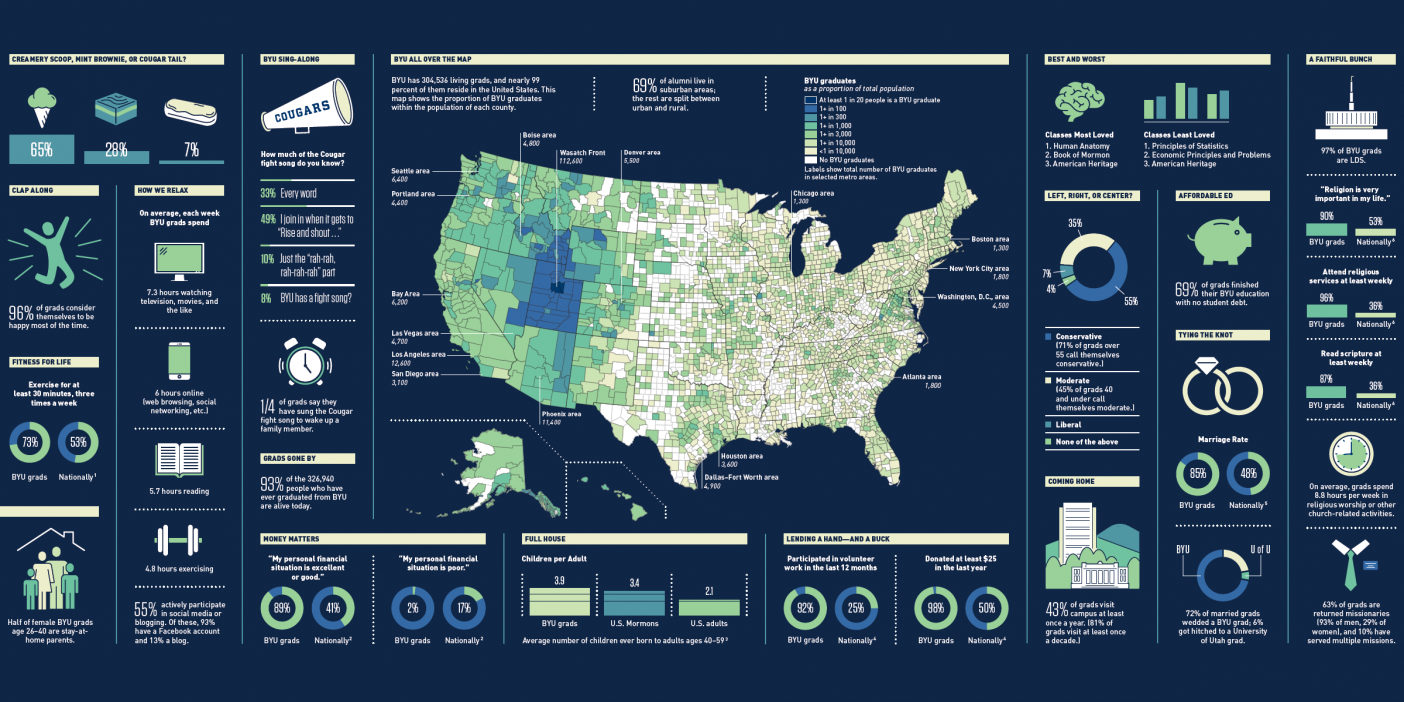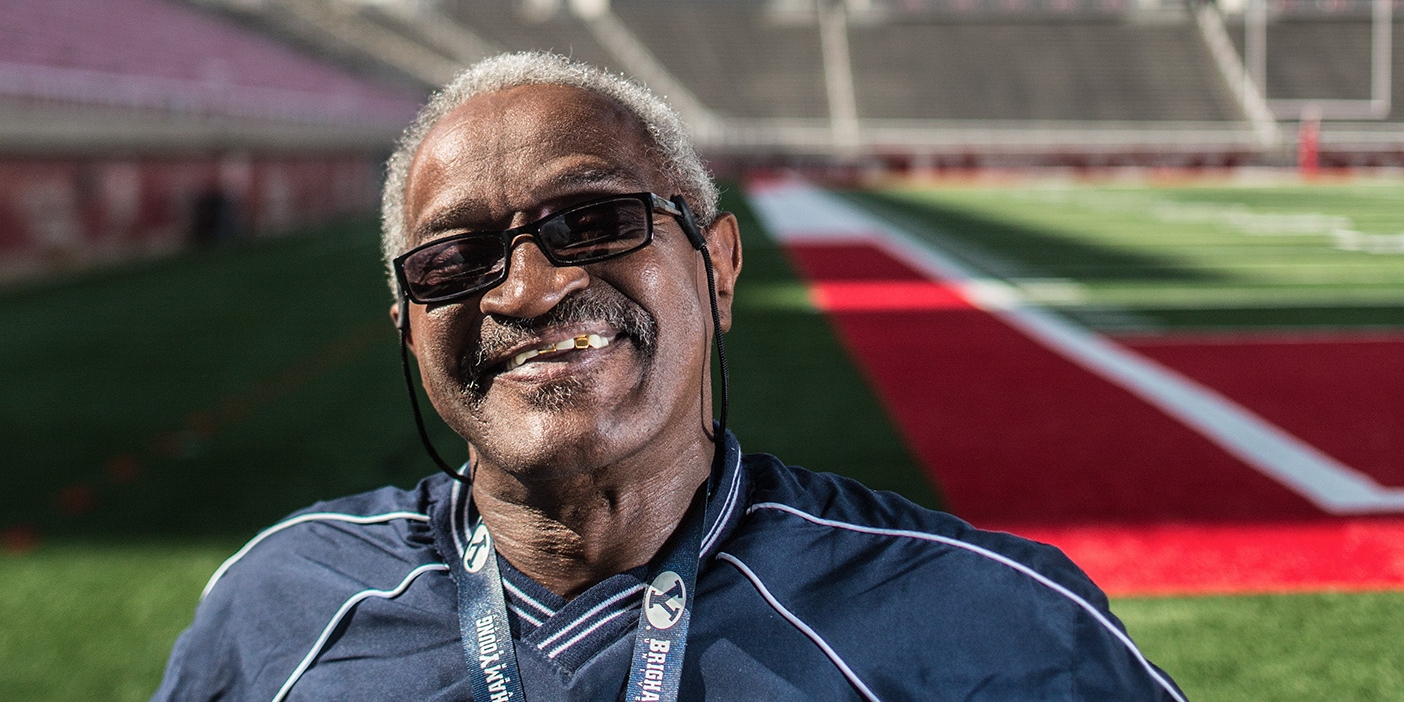BYU quarterback Tanner C. Mangum (’18) holds his position, ready to take the snap. But today Mangum isn’t surrounded by his regular supersized posse. The center is a shorter, smaller male with a toothy grin, and the rest of the line looks much the same—most under age 14. They’re in a scrimmage game, where BYU Cougars and Harlem Jets youth players hunker down side by side and where every play is cause for celebration. “You would’ve thought BYU had just won the national championship because the BYU players would go crazy cheering for the kids,” says Harlem Jetscoach Tyson Pratcher.
This clinic is part of coach Kalani F. Sitake’s (BA ’00) off-season vision for BYU football to give back to young athletes. He started the More2Life Foundation, a public charity, to help disadvantaged kids engage in mentoring, educational, and athletic opportunities. In memory of beloved former coach R. LaVell Edwards (EdD ’78), Sitake chose to take his football team to Harlem first, where Edwards and his wife served their LDS mission in 2002.
While Edwards was alive, Sitake would meet occasionally with the legendary coach to report on how the team was doing, but it wasn’t football that excited Edwards the most. “He and Patti, their eyes would light up whenever we talked about the service that our players did,” Sitake says. “This is the father of BYU football, and yet he’s more concerned about the service.”
“It was literally the best thing that’s ever happened to our organization.” —Harlem Jets Coach Tyson Pratcher
In April, Sitake, his full coaching staff, and 34 BYU football players flew to Harlem to teach the Jets that there’s more to football and more to life. Much of the clinic was out on the gridiron—young boys practicing speed and agility, blocking, and the three-point stance—but the focus was on inspiring people through service. As a boy, Sitake “idolized” BYU football players after they came to speak to his elementary school. “I had BYU football players change my life just by encouraging me, and I think that it’s good for us to use this platform to help others,” Sitake says.
The BYU team taught the Jets about setting goals and helped the youth create humanitarian kits for the homeless. “The actual football stuff was probably the least important part of the day,” Pratcher says. “It was certainly the connections that were made and the discussions around being a good role model that were probably the most impactful for our kids.”
Towards the end of the clinic, the BYU football team encouraged the Jets to go out and serve people in the community, saying that if they did, they’d get some BYU swag in the mail. Soon after the clinic, kids were sending photos of themselves cleaning playgrounds, participating in blood drives, and helping the homeless. “These kids, they’re seeing the vision now,” Sitake says. “It was nice seeing them catch the bug of service.” In the future, Sitake says he’d like to return to New York and set up similar clinics for other football teams in the area.
Having the BYU football team come from across the country made a lasting difference for his youth team, says Pratcher. “You probably can’t come to a Harlem Jets football practice now without seeing someone in BYU gear, or hat, or T-shirt.” Pratcher hopes the gear will help his athletes remember the lessons of the camp. He says, “It was literally the best thing that’s ever happened to our organization.”







